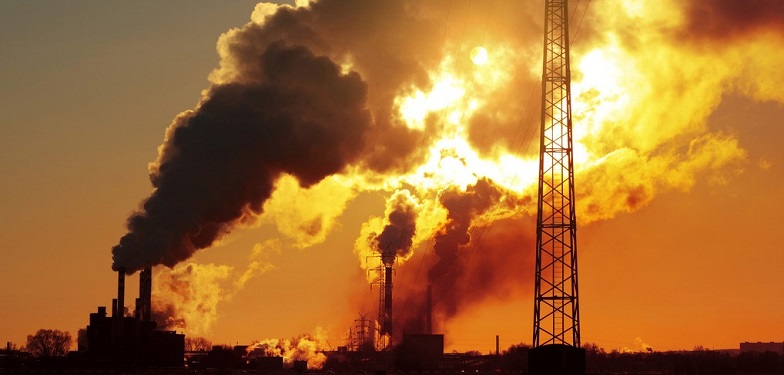Climate change statement: Policy innovation crucial

China’s economy has skyrocketed, but at a price. Power plants, factories and heavy industries are belching out black, dirty air. Now people are becoming increasingly concerned with the environment and health.
In anticipation of the 21st session of the United Nations Framework Convention on Climate Change this December, President Xi Jinping and his French counterpart Francois Hollande issued a joint statement on Nov. 2 in Beijing.
It pointed out that climate change is the common concern of all humankind and one of the greatest global challenges of the 21st century. The issue needs to be addressed through international cooperation in the context of sustainable development, according to the statement.
Once again, the topic has stirred up heated debate on cutting emissions and growing a low-carbon economy.
Giddens paradox
Scholars said that the transition from high-carbon to low-carbon behavior also involves an underlying issue—human beings are both contradictory and unified as producers and consumers.
On the one hand, they tend to pursue maximum interest and efficiency, but due to limitations in production models and lifestyles, they have to rely on a high-carbon economy. On the other hand, they yearn for a good environment and a low-carbon society. The paradox, in a way, slows down the development of a low-carbon economy.
Lu Xianxiang, a professor of economics at Zhongnan University of Economics and Law in Hubei Province, said: “Though more and more people recognize the importance of emissions reduction and low-carbon economy, few are willing to take concrete action, which is also called the Giddens paradox.”
Zhuang Guiyang, director of the Climate Change Office of the Institute for Urban and Environmental Studies under the Chinese Academy of Social Sciences, said that many countries still rely on government control and administrative tools to save energy and reduce emissions.
However, Zhang said, it is important to put in place a long-term mechanism and related laws and regulations for legal protection while reforming energy prices, helping enterprises break down obstacles, and releasing market potential.
Lu said that enterprises frequently discuss carbon reductions but the role of individuals is rarely noticed. “In fact, the point of incentive innovation in the consumption sector is to explore the emission-reduction potential of individuals,” he said.
Therefore, Lu suggested that individuals should also be able to trade their unused carbon quotas, which they would earn via a low-carbon lifestyle.
Slow technology transfer
There is a huge gap between developed and developing countries in terms of technology. In order to achieve the common goal of global sustainable development, developed countries are obliged to provide financial aid and technology transfers to developing countries, Lu said.
Zhuang said international technology transfer faces a series of obstacles. For technology providers, a lack of global vision, fear of losing monopoly status, and insufficient economic incentives reduce their enthusiasm, whereas technology recipients face talent shortages, expensive fees, scattered industrial structures, and incomplete laws and regulations.
“As a result, the progress of technology transfers is rather slow,” Lu noted.
Interdisciplinary research
Scholars said sustainable development is necessary and urgent, but it is vital to remain calm and rational amid the panic of global warming and avoid overreacting and deviation to map out an optimal, plausible, cost-effective development path.
Zhuang said: “Theory and practice of low-carbon economics have grown hand in hand in recent years.” This means scholars must learn from previous policies and further strengthen research in costs and benefits, opportunities and challenges, approaches and potentials during the transition period to provide scientific support for decision makers, he noted.
“Low-carbon economics appears to simply involve emission reductions, but it’s a complex subject concerning a range of disciplines, such as economics, sociology, and politics in the humanities, as well as biology, chemistry and climatology in the natural sciences,” Lu said, adding that a comprehensive platform needs to be established to promote interdisciplinary research in a coordinated manner.
Ming Haiying is a reporter at the Chinese Social Sciences Today.
